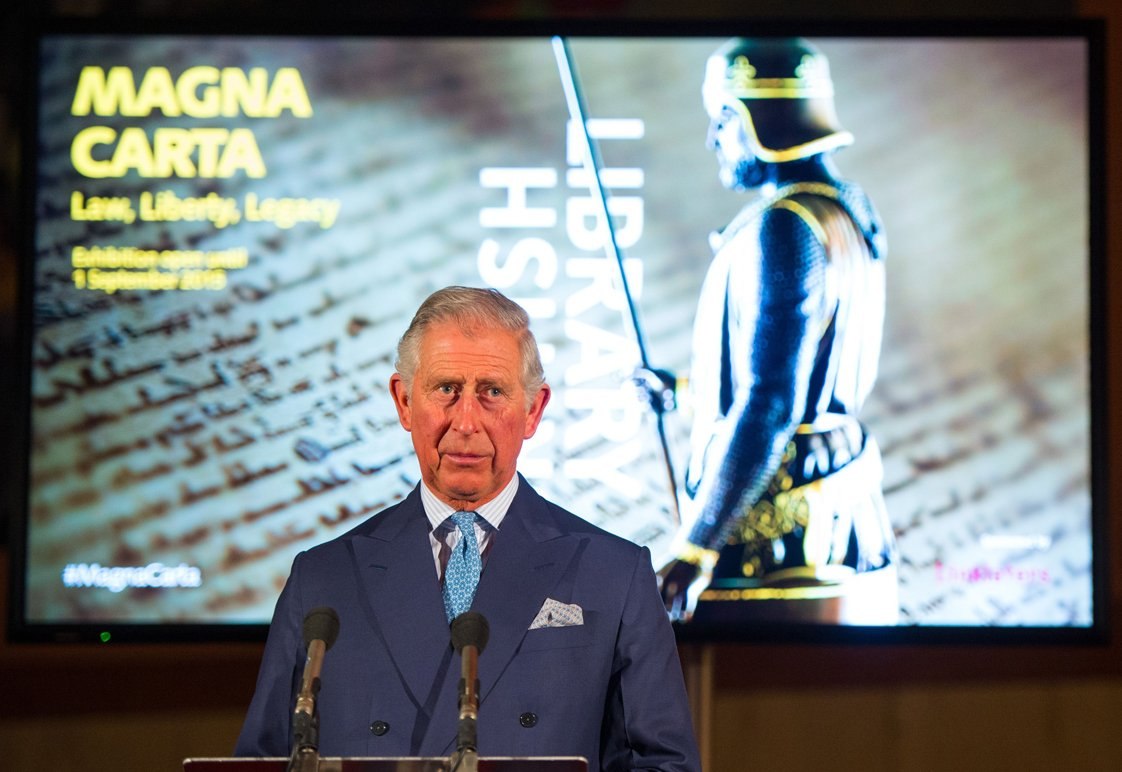David Cameron has hailed it as ‘the foundation of all our laws and liberties’.
The Queen has gone to Runnymede to celebrate King John applying his seal to it it eight hundred years ago. It is praised by all sides in contemporary political dispute. But what really is the importance of Magna Carta? And what is its relevance today?
Much of the commentary surrounding this week’s commemoration of the ‘Great Charter’ has focused on our misconceptions about it. It was not, the historians have been telling us, a pioneering document of human rights, of democracy, or of equality. Rather it was, according to the Master of the Rolls, Lord Dyson, a ‘hotch-potch’. Others have called it a ‘squalid little deal’ between two confronting powers, the King of England on one side and his ‘unruly barons’ on the other. The interests of ordinary folk were no part of it.
Yet it has become enshrined in our national story as the basis of all we hold dear, as the Prime Minister put it. Most of of its sixty-three clauses were particular to the troubles of the time, bearing upon apparently trivial matters such as the trade in ale, but two of them remain part of our statute law and do indeed underpin some of the liberties we most value – even if we do tend to take them for granted.
Clause 39 declares: ‘No freeman is to be arrested, or imprisoned, or disseised [have his properties confiscated], or outlawed, or exiled, or in any other way brought to ruin; nor will we go or send against him except by the legal judgement of his peers or by the law of the land’.
And Clause 40: ‘To none will we sell, to none will we deny, or delay, the right of justice’.
These clauses encapsulate the principles of the rule of law. For the first time in our history they estyablisherd that the law is greater even than the ruler.
These principles have been evoked at all the moments of political crisis in England (and later Britain) since 1215. They were exported with the empire to far parts of the world. And they were adopted by others who understood their value. When the United Nations Charter of Human Rights was pioneered and brought into being by Eleanor Roosevelt at the end of the Second World War, she called it ‘a Magna Carta for all mankind’.
It hardly needs to be said, however, that these underlying principles of constraining brute power by law have been more breached than observed. It’s not just that many countries that signed up to the UN Charter pay those principles little more than lip-service. Advanced democracies may have built up elaborate legal mechanisms to put the principles into practice, but many oif the most powerful have always founbd ways to evade them. They put themselves above the law.
So who are the modern King Johns who still need to be brought to Runnymede to sign a new Magna Carta?
Three candidates are cited. First, there are governments. It is true that national governments of advanced democracies hold power only by the say-so of those who elect them. It’s also true that they are constrained in so much of what they do by the common law that originated in Magna Carta and by all the statute laws that followed. Even so, they all too often act outside it. The list is long, but take a couple of relatively recent examples. The revelations of Edward Snowden into the illicit government surveillance of how we communicate with each other is one. Another is the charge made against Tony Blair and George Bush of what their critics regard as the blatant illegality of their invasion of Iraq.
Second, there is power exercised by supranational bodies. Many argue against allowing supranational courts, such as the European Court of Human Rights, to adjudicate on matters they think should be determined by national courts attack. They regard them as unaccountable, undemocratic and contrary to the principles of Magna Carta which they interpret in national terms. Some argue against the powers of the European Union on similar grounds. Of course those on the other side of the argument make an equally hot case against such an interpretation. Whatever the truth, it is certainly the case that many people see ‘Europe’, in its diffuse manifestations, as a modern King John.
And third, there is the power that seems immune to democratic government whether national or supranational: big money. Many believe that global capitalism is the new King John. Whether it be banks and their super-rich bosses who have gone unpunished for plunging the world into deep recession or nimble multinational companies who manage to dodge paying the taxes the rest of us have no choice but to pay, the masters of global capitalism appear to many simply to do as they please irrespective of the effect on the rest of mankind. Their critics say it is they who need to be brought to Runnymede,
So as we celebrate eight hundred years of Magna Carta and take pride in what the signing of that ‘squalid little deal’ gave to the world, there is reason to argue that the job of constraining power by law is far from being done.
What do you think is its next task?









